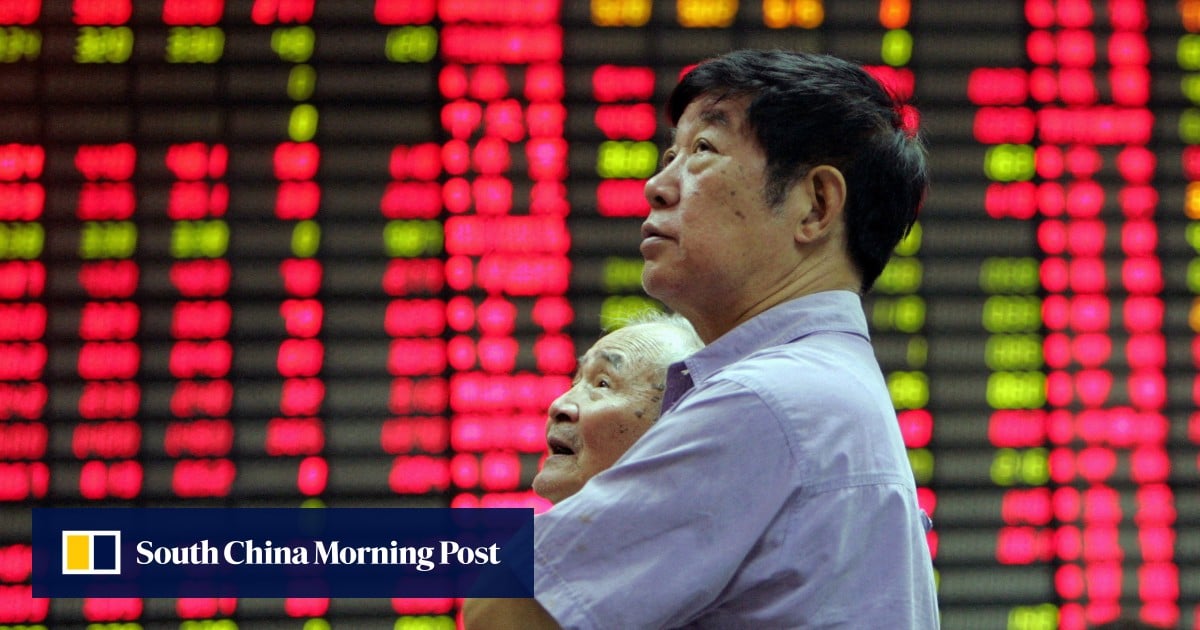By 2035, the market should have achieved “a reasonable structure of investing and fundraising” in which listed companies have demonstrated a significant improvement in quality, it said. There must also be demonstrable progress in cultivating first-class investment banks and financial institutions.
“This will boost investors’ sentiment to some extent,” said Dai Ming, a fund manager at Huichen Asset Management in Shanghai. “But it’s guidelines, and what we’ll need to see going forward is how the securities regulator will implement these changes.
“From an investor’s perspective, restricting the scale of fundraising, namely new share sales, and ramping up the delisting of unqualified listed companies is what we want to see most.”
The push highlights the fact China’s state support for its stock market has entered a new stage, with some of the supportive measures proposed by the CSRC now being written into the State Council’s documents. It is rare for China’s cabinet to issue documents directly targeting the stock market, with the two previous such occasions occurring in 2004 and 2014, both preceding a raging bull market.
“Pushing the high-quality development of the capital market will be conducive to developing the new productive force, enriching financial products and services and creating opportunities to increase wealth for residents.”
He emphasised the importance of preventing systemic financial risk, and called on financial regulators and industry authorities to clarify their responsibilities and strengthen cooperation.
“Financial regulation must have teeth,” Xi was quoted by state media outlet Xinhua as saying.
Friday’s guidelines complement four documents issued last month by the CSRC pledging to crack down on fraudulent listings, raise the threshold for new listings and require publicly traded companies to return more to investors through buy-backs and dividend payouts.
According to the document published today, companies will be required to disclose their dividend payout policies when they list, and stricter rules on information disclosure and corporate governance will be implemented to restrict stake reductions by major shareholders and push listed companies to boost investment value.
The regulators will also work out standards for abnormal trading and manipulation, issue rules to strengthen the supervision of high-frequency transactions, and mete out severe punishments in cases of malicious manipulation and short-selling, it said.
The document also called for the fast-track approval of exchange-traded funds, the expansion of index-based funds, and a higher proportion of stock-focused funds in the mutual fund industry.
Chinese stocks have recently stabilised somewhat, with the CSI 300 Index rebounding about 9 per cent from a February low, after a flurry of state support measures ranging from direct buying by the nation’s sovereign wealth fund to restrictions on quantitative investments and short selling.
The State Council guidelines may add some impetus, as this run-up shows some signs of fizzling out, with investors now shifting their focus to the economy and corporate earnings.
The State Council published two similar sets of guidelines to promote the healthy and stable development of the stock market, in 2004 and 2014, when the benchmark indices had similarly fallen to multi-year lows before embarking on bull runs. The CSI 300 Index surged more than fivefold within the space of two years through October 2007 and more than doubled in the 12 month to June 2015.







